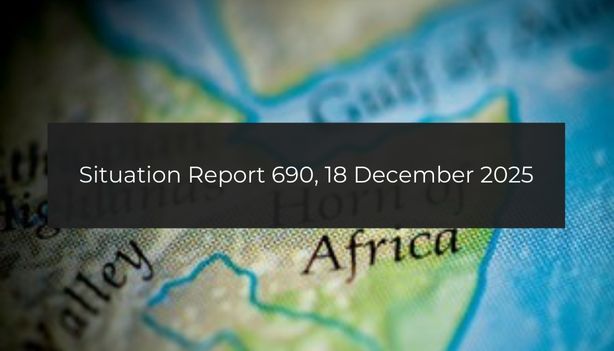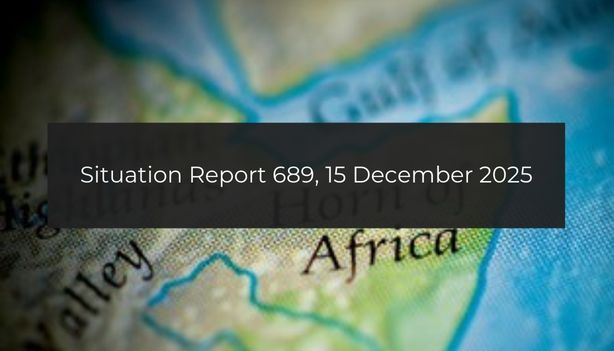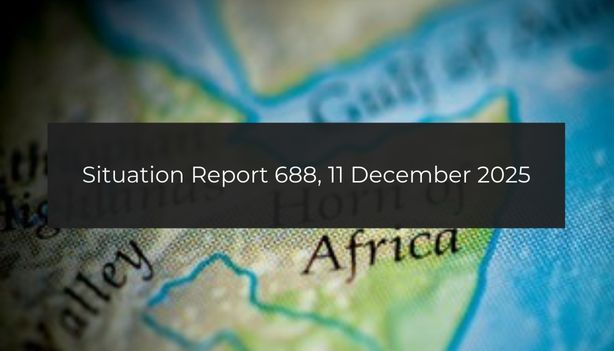Situation Report: Gambella police chief killed; SAF accused of ethnic targeting of Kanabi communities; EU doubles down on stricter migration policies
posted in: Africa, African Union, Eritrea, Ethiopia, European Union, Horn of Africa region, Human Rights abuses, Humanitarian Aid, Humanitarian Crisis, IDPs, IOM, Migration, Rapid Support Forces, Refugees in the EU, RSF, Situation report, Situation Reports, South Sudan, Sudan, Sudanese Armed Forces, Tigray, UNHCR, United Nations |
0
SITUATION REPORT – HORN OF AFRICA & NEWS HIGHLIGHTS
No. 690 – 18 December 2025
Situation Report: Six UN Peacekeepers killed in drone strike in Sudan; Eritrea withdraws from IGAD; Ethiopia cracks down on TikTok creators
posted in: Africa, African Union, Eritrea, Ethiopia, Germany, Horn of Africa region, Human Rights abuses, Human Trafficking, Humanitarian Aid, Humanitarian Crisis, Libya, Migration, Rapid Support Forces, RSF, Situation report, Situation Reports, South Sudan, Sudan, Sudanese Armed Forces, Tigray, Trafficking, United Nations, United States, World Food Programme |
0
SITUATION REPORT – HORN OF AFRICA
No. 689 – 15 December 2025
Situation Report: Jajaweed leader sentenced to 20 years by ICC; High Court suspends US-Kenya healthcare deal; 150 Eritreans deported from Egypt
posted in: Africa, African Union, Asylum Seekers, Denmark, Egypt, Eritrea, Ethiopia, European Union, Horn of Africa region, Human Rights abuses, Humanitarian Aid, Humanitarian Crisis, Migration, Rapid Support Forces, Refugees in the EU, RSF, Situation report, Situation Reports, South Sudan, Sudan, Sudanese Armed Forces, United Kingdom |
0
SITUATION REPORT – HORN OF AFRICA & NEWS HIGHLIGHTS
No. 688 – 11 December 2025




